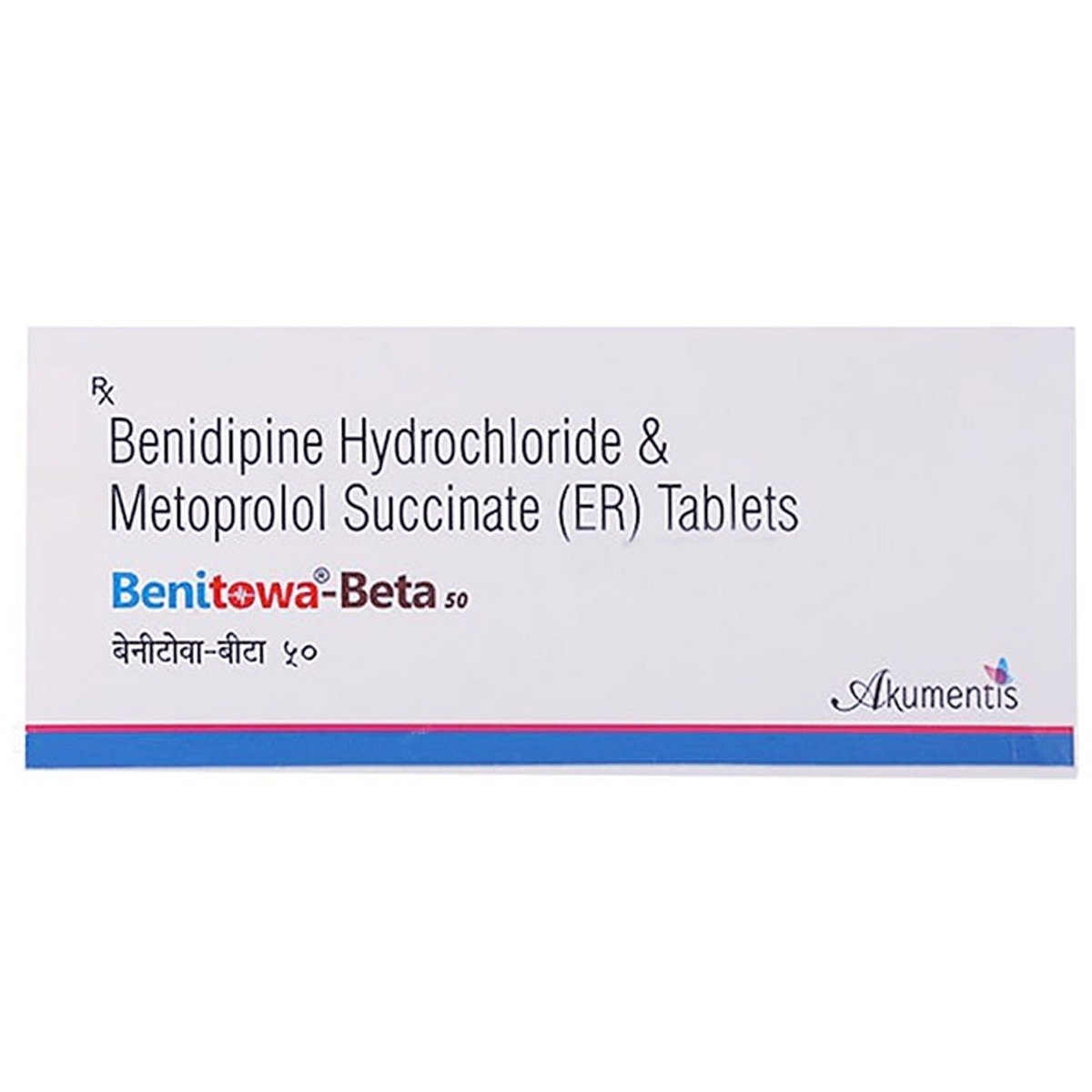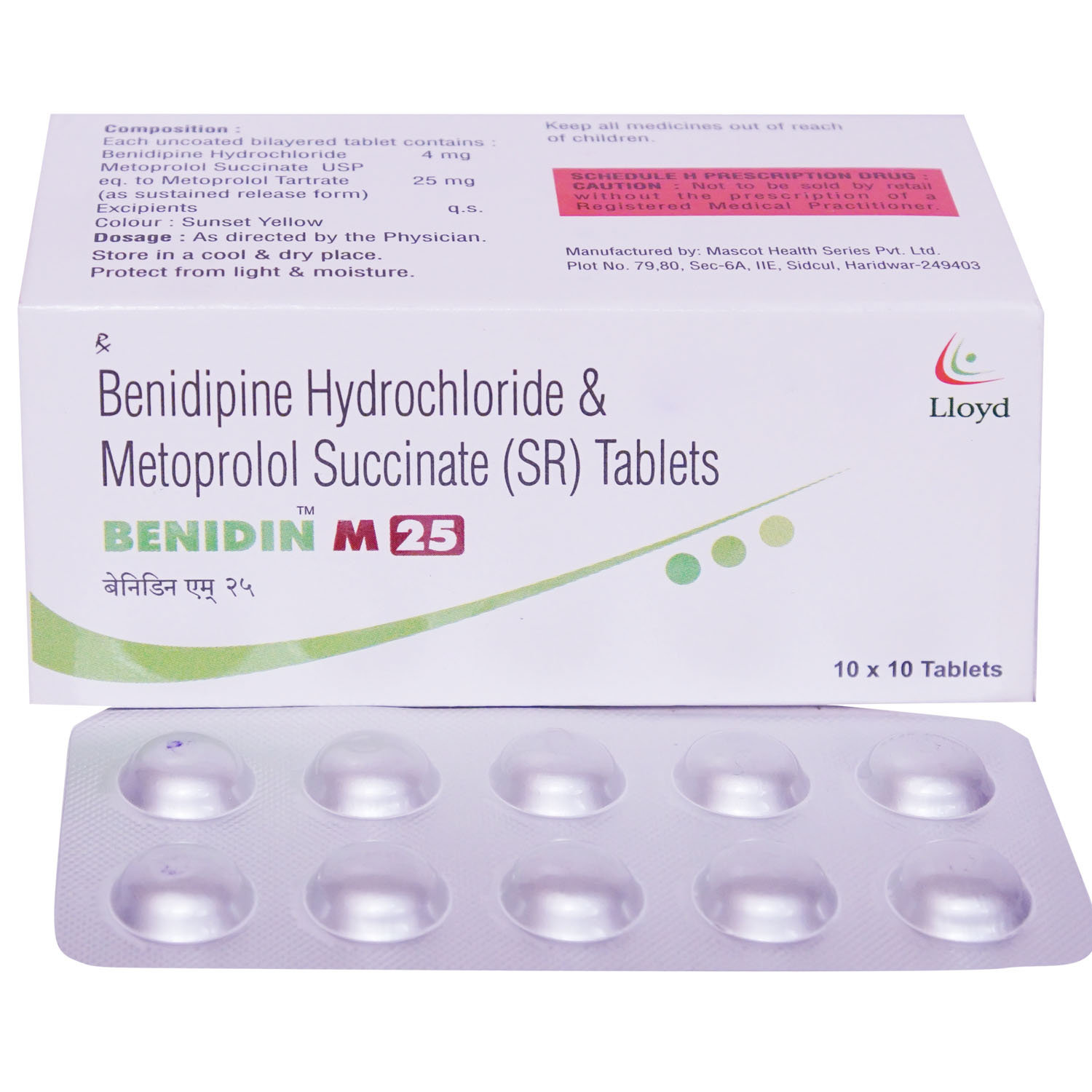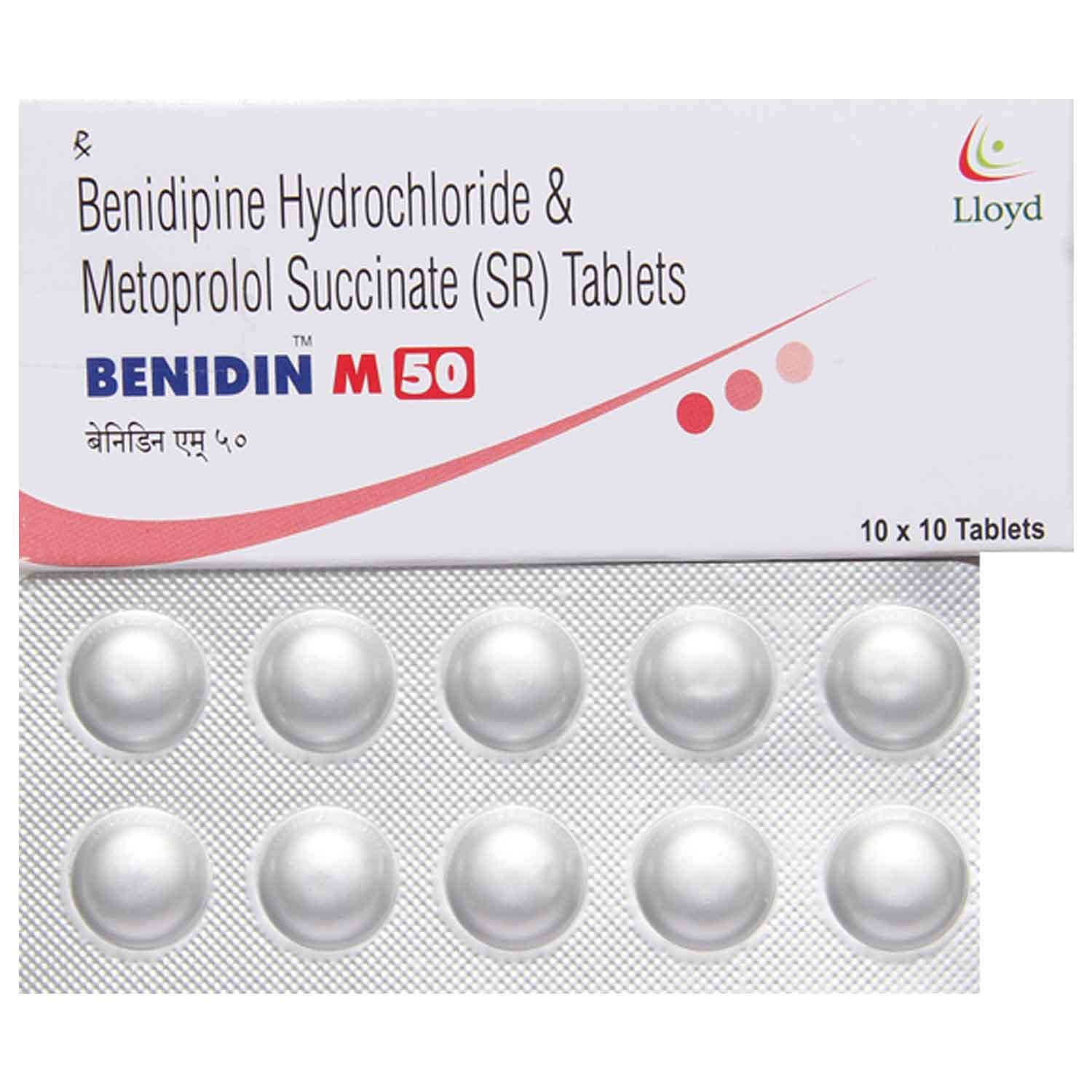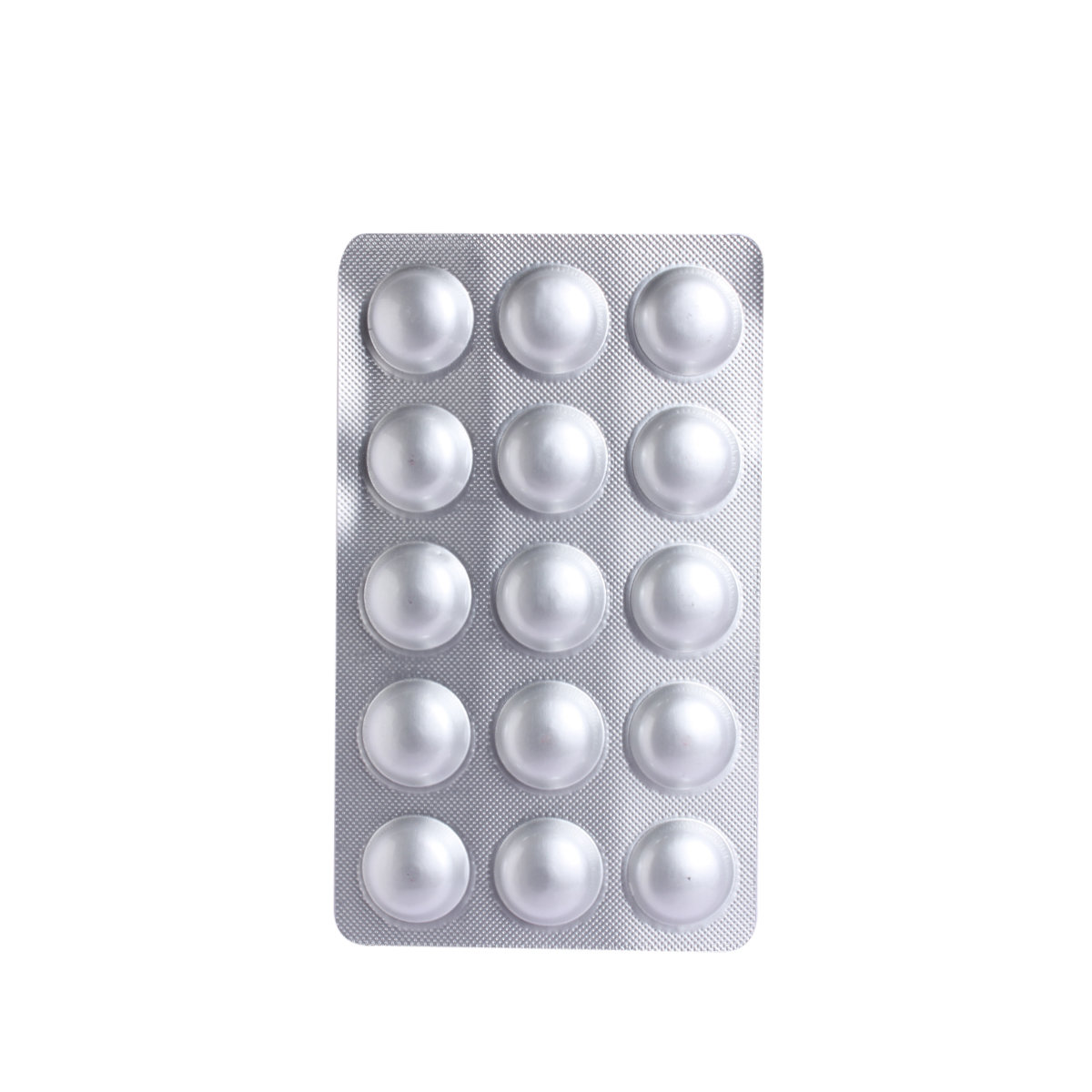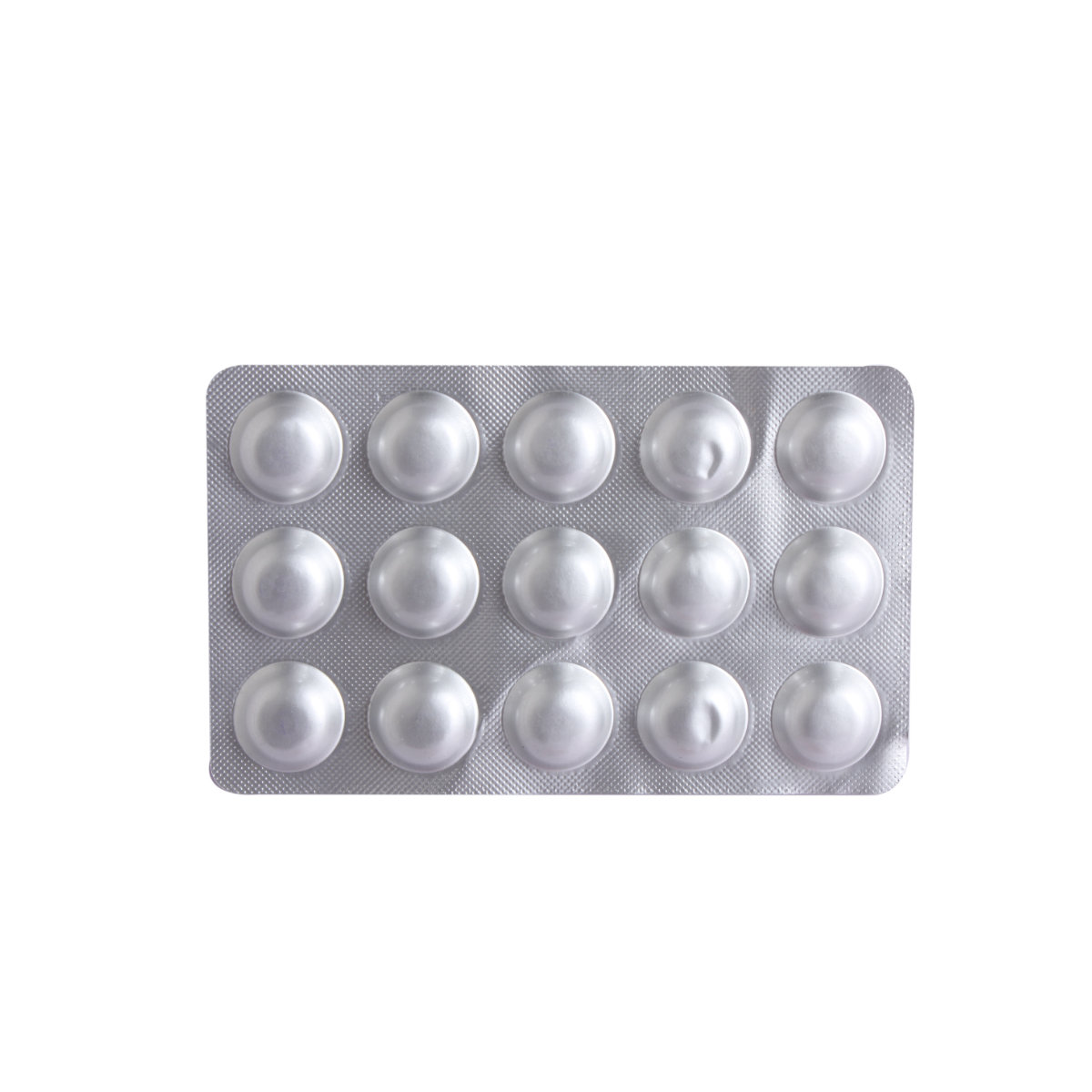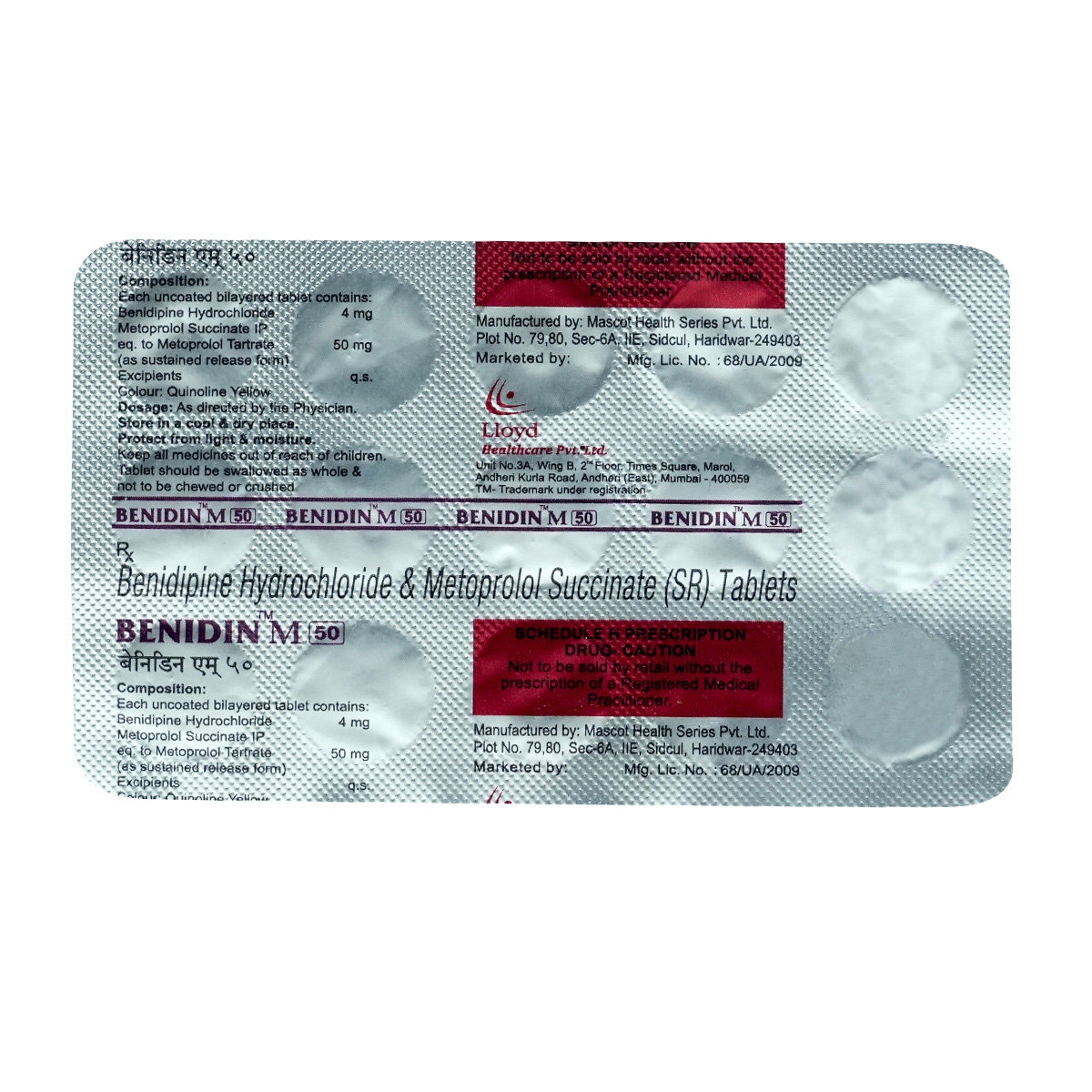Benidipine+metoprolol
About Benidipine+metoprolol
Benidipine+metoprolol belongs to the group of anti-hypertensive medicines used to treat high blood pressure (hypertension). Benidipine+metoprolol helps lower the blood pressure, thereby reducing the chances of heart problems such as heart attack and stroke. High blood pressure is a condition in which the blood exerts increased pressure on the walls of blood vessels.
Benidipine+metoprolol is a combination of two drugs, namely: Benidipine and Metoprolol. Benidipine acts on the calcium channels of the blood vessels and enlarges the coronary vessel and peripheral arteries, thereby helps blood flow smoothly. Metoprolol slows down the heart rate and makes it easier for the heart to pump blood throughout the body. Together, Benidipine+metoprolol helps treat hypertension.
You are advised to take Benidipine+metoprolol for as long as your doctor has prescribed it for you, depending on your medical condition. In some cases, you may experience common side effects such as headache, dizziness, tiredness, diarrhoea, and nausea. Most of these side effects do not require medical attention and will resolve gradually over time. However, you are advised to talk to your doctor if the side effects persist or worsen.
Try not to stop taking Benidipine+metoprolol on your own, as it may cause a sudden increase in blood pressure. Consult your doctor if you are pregnant or breastfeeding. The safety of Benidipine+metoprolol in children is unknown, so please consult your doctor if you have any concerns. Benidipine+metoprolol may cause dizziness, so drive with caution. Avoid consuming alcohol as it might cause increased dizziness. Inform your doctor about all the medicines you are taking and your health condition to rule out any interactions.
Uses of Benidipine+metoprolol
Medicinal Benefits
Benidipine+metoprolol is a combination of two drugs, namely: Benidipine and Metoprolol. Benidipine acts on the calcium channels of the blood vessels and enlarges the coronary vessel and peripheral arteries, thereby helps blood flow smoothly. Metoprolol slows down the heart rate and makes it easier for the heart to pump blood throughout the body. Together, Benidipine+metoprolol helps treat hypertension. Benidipine+metoprolol helps lower blood pressure, thereby reducing the chances of heart problems such as heart attack and stroke. Benidipine+metoprolol may also be used to treat angina pectoris.
Directions for Use
Storage
Side Effects of Benidipine+metoprolol
- Headache
- Dizziness
- Tiredness
- Diarrhoea
- Nausea
Drug Warnings
Do not take Benidipine+metoprolol if you are allergic to any of its contents. Inform your doctor if you have diabetes, circulation problems, asthma, COPD, congestive heart failure, thyroid disorder, adrenal gland tumour, heart, kidney, or liver problems; or if you are on a low-salt diet. Consult your doctor if you are pregnant or breastfeeding. Benidipine+metoprolol may cause dizziness, so drive with caution. Avoid consuming alcohol as it might cause increased dizziness. Rise slowly from lying/sitting position as Benidipine+metoprolol may cause dizziness (orthostatic hypotension).
Drug Interactions
Drug-Drug Interactions: Benidipine+metoprolol may interact with medicines such as painkillers (aspirin), anti-depressant (duloxetine, alprazolam), anti-diabetic (insulin glargine), diuretics (furosemide), hormones (levothyroxine).
Drug-Food Interactions: Avoid grapefruit and grapefruit juice as they might decrease blood pressure.
Drug-Disease Interactions: Inform your doctor if you have diabetes, renal dysfunction (kidney disease), pulmonary disease, alcoholism, congestive heart failure (heart disease), hypotension (low blood pressure) or liver disease.
Drug-Drug Interactions Checker List:
Safety Advice

Alcohol
cautionAvoid consuming alcohol as it might cause increased dizziness.

Pregnancy
cautionPlease consult your doctor if you are pregnant; your doctor will prescribe only if the benefits outweigh the risks.

Breast Feeding
cautionPlease consult your doctor; your doctor will decide whether Benidipine+metoprolol can be taken by breastfeeding mothers or not.

Driving
cautionBenidipine+metoprolol may cause dizziness, do not drive or operate heavy machinery if you feel dizzy.

Liver
cautionDose adjustment may be needed. Benidipine+metoprolol should be used with caution in patients with liver impairment/liver disease. Please consult your doctor if you have liver problems or any concerns regarding this.

Kidney
cautionDose adjustment may be needed. Benidipine+metoprolol should be used with caution in patients with kidney impairment/kidney disease. Please consult your doctor if you have kidney problems or any concerns regarding this.

Children
cautionLimited information is available. Please consult your doctor if you have any concerns regarding the usage of Benidipine+metoprolol in children.
Habit Forming
Diet & Lifestyle Advise
- You are advised to consume low salt and low-fat diet.
- Regular exercise is also recommended.
- Eat a diet rich in whole grains, vegetables, and fruits.
- Avoid smoking and alcohol consumption.
- Maintain a healthy weight with proper diet and exercise.
- Manage stress with meditation and yoga.
Special Advise
- Regular monitoring of blood pressure levels, kidney/liver function and electrolyte levels while taking Benidipine+metoprolol is advised.
- If you are due to undergo any tests or surgery, inform your doctor that you are taking Benidipine+metoprolol.
Patients Concern
Disease/Condition Glossary
High blood pressure (hypertension): It is a condition in which the blood exerts increased pressure on the walls of blood vessels leading to hypertension. This condition can lead to hardened arteries (blood vessels), decreasing the blood and oxygen flow to the heart. Raised blood pressure can cause chest pain (angina) and heart attack (when the blood supply to the heart is blocked). High blood pressure also causes brain damage (stroke) and kidney failure. Symptoms of high blood pressure include headache, dizziness, nose bleed, changes in vision, chest pain, weakness and dyspnoea (shortness of breath). However, most of the time, the signs and symptoms of hypertension are none.
FAQs
Benidipine+metoprolol contains Benidipine and Metoprolol. Benidipine acts on the calcium channels of the blood vessels and enlarges the coronary vessel and peripheral arteries, thereby helps blood flow smoothly. Metoprolol slows down the heart rate and makes it easier for the heart to pump blood throughout the body. Together, Benidipine+metoprolol helps treat hypertension.
High blood pressure increases the workload on the arteries and heart. If untreated, it could damage the blood vessels of the heart, brain, kidney and might result in stroke, heart failure or kidney failure. Hypertension increases the risk of heart attacks. Therefore, anti-hypertensives such as Benidipine+metoprolol are used to lower the blood pressure to normal; this reduces the risk of developing these disorders.
Please do not stop taking Benidipine+metoprolol without consulting your doctor, as it may lead to a rise in blood pressure. To treat your condition effectually, continue taking Benidipine+metoprolol for as long as your doctor has prescribed it. Do not be reluctant to speak with your doctor if you experience any difficulty while taking Benidipine+metoprolol.
Orthostatic hypotension could be a side-effect of Benidipine+metoprolol. Orthostatic hypotension is a sudden lowering in blood pressure leading to dizziness on standing. If you experience this, do not try to stand up suddenly or start walking; instead, lie down and get up slowly only when you feel better. People taking Benidipine+metoprolol are advised to regularly monitor their blood pressure levels to avoid unpleasant events.
Inform your doctor if you have diabetes as Benidipine+metoprolol might make it harder to notice the symptoms of low blood glucose levels. Regular monitoring of blood sugar levels whilst taking Benidipine+metoprolol is advised.


